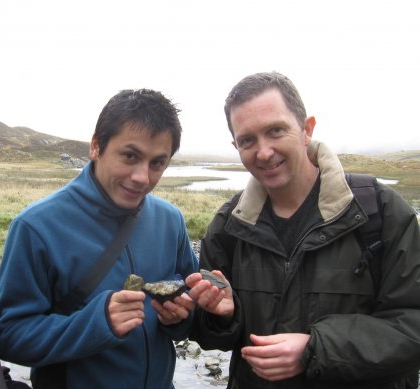Emotion
Many aspects of my research have focussed on phenomena related to emotion, but I have seldom worked on core aspects of emotion. The Bamford et al paper reports some work in this domain, especially as it relates to the amygdala. In the last few years I have also developed more of an interest in emotion regulation, primarily because of my work with Christian Salas. The first fruits of this labour appear in the Salas et al (2011) paper on emotion elicitation, comparing externally generated emotions (video clips) versus internally generated emotions (thinking of emotional events from ones life). We demonstrate the scientifially important finding that internally generated emotion tools, which are of course more ecologically valid, generate more emotion (an unsurprising finding), while not compromising the specificty of the emotion-targeting. This finding should be very helpful for the emotion-elicitation community - allowing them to use more relaisting tools to investigate these important phenomena.
Bamford, S., Turnbull, O.H., Coetzer, R. & Ward, R. (2009). To lose the frame of action: A selective deficit in avoiding unpleasant objects following unilateral temporal lobe lesion. Neurocase, 15: 261-270.
Salas, C. E., Radovic, D., & Turnbull, O. H. (2011). Inside-out: comparing internally generated and externally generated basic emotions. Emotion, 9: 1-11.

Christian Salas is a PhD student working on emotion regulation after focal brain lesion